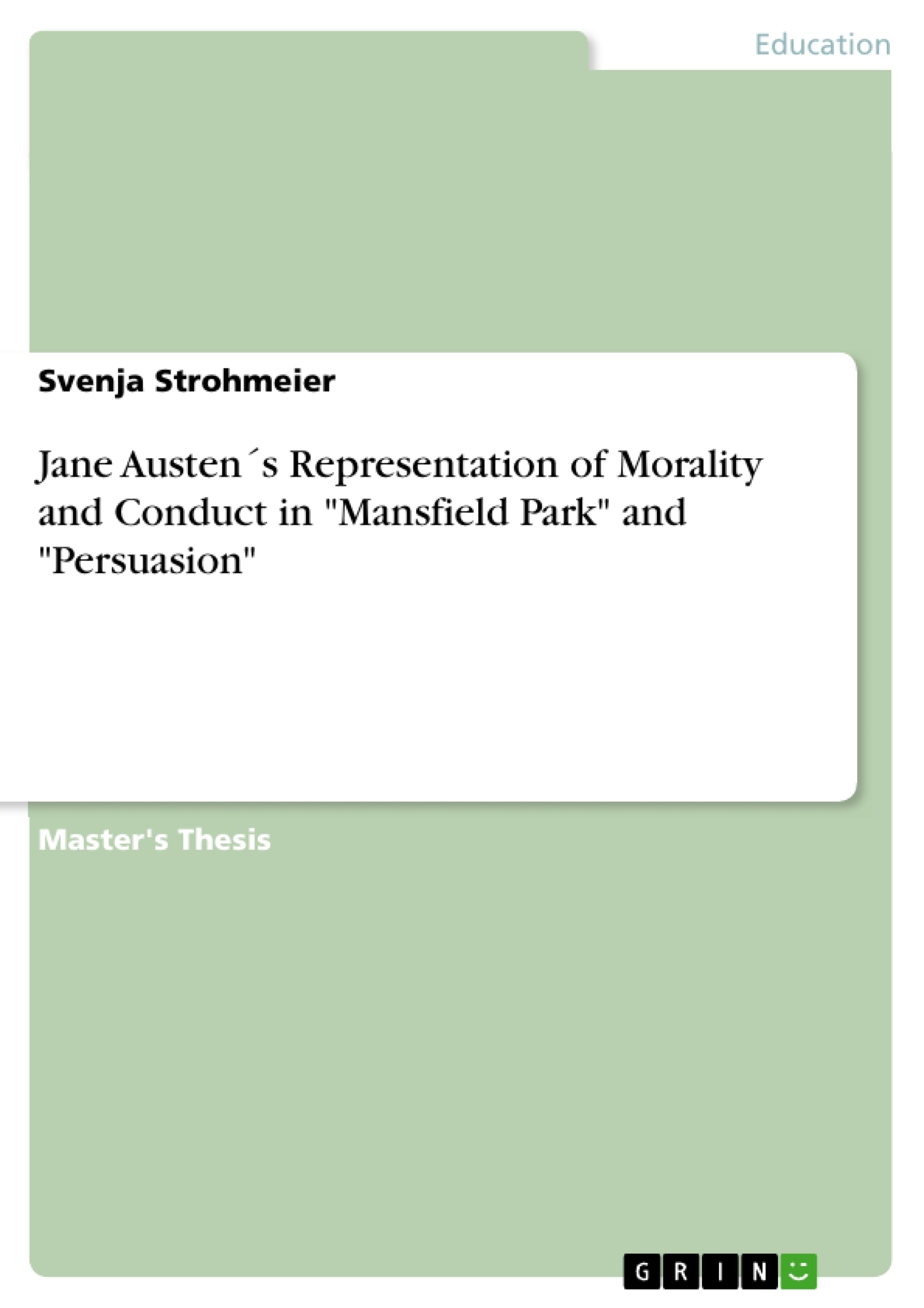This master thesis examines Jane Austen´s representation of morality and conduct in her two novels Mansfield Park (1814) and Persuasion (1818), as these two novels reflect the notion of the named aspects during the English Regency Period and Victorian time. Morality is a term describing the inner, partly learned notions. Conduct describes the shown behaviour of a person, determinable by their actions. Thus, this thesis examines the human inner and outer values during the English Regency and the Victorian period.
The heroines of said novels, Fanny Price and Anne Elliot, are Austen´s two heroines not appearing strong and autonomous from the beginning on, but developing to become so. This is the reason for these two Austen novels being chosen. By their use, the behaviour and expectations towards other people during this period are shown. A view upon the notion of women´s nature in those times is given from time to time to complete the picture. This is necessary to examine if the notion of a woman´s conduct is aimed to be understood.Men and women possessed conducts, standards and moralities to accept and to live after, these being examined in this thesis.Various conduct-books of that time are used to prove the novels to be exemplary for the conduct and morality during the Regency period, one of them being Sermons to Young Women by James Fordyce, the book Mr. Collins uses to read to and bore the Bennett sisters in Austen´s Pride and Prejudice (published 1813). Another conduct book used is An Enquiry to the Duties of the Female Sex by Thomas Gisborne (1801), a book given to Jane Austen by her (often rather conservative) sister Cassandra. A Father´s Legacy to His Daughter by Dr. Gregory (1774/2012) was so well known in Austen´s time that other authors of various conduct-books assumed the knowledge of this book for their writings. There is a good case to believe that this book was a part of Austen´s father´s bibliography. The Habits Of Good Society: A Handbook for Ladies And Gentlemen, written by an anonymous author (1872/2012), provides a different, because broader view on the topic.
The different situations where morality and conduct may differ in the said novels are divided into love, family, faith, conduct and the public life to achieve lucidity in this thesis.
Content
1. Introduction
2. Morality and Faith
3. Morality and Conduct
4. Morality and Public
5. Morality and Love
6. Morality and Family
7. Conclusion
8. Austen's Morality and Conduct in School
References



